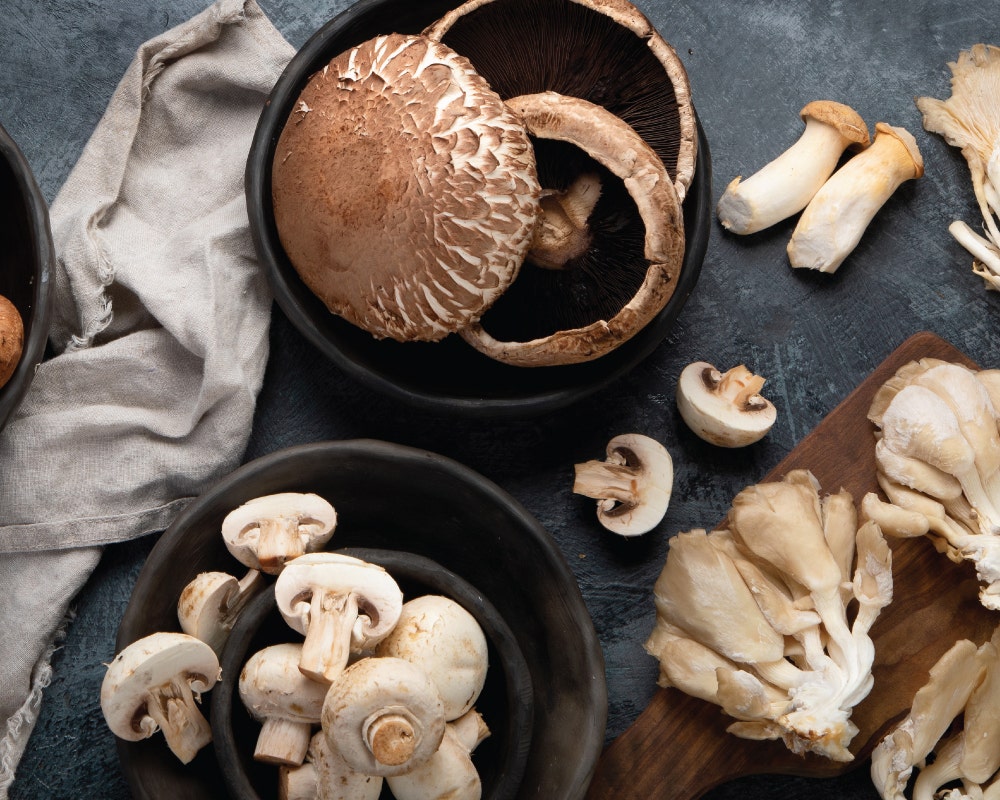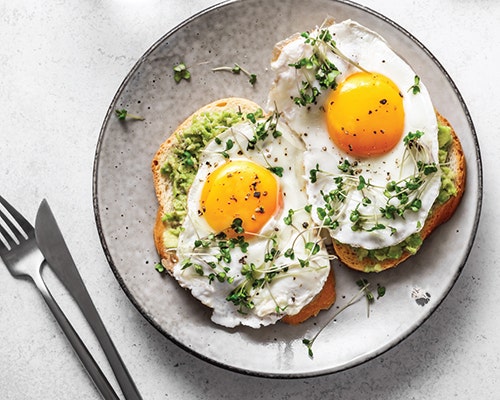Spice Up Your Health with Saffron
- 10/5/23


Saffron may not be one of the most popular ingredients in Western kitchens, but perhaps there’s more than meets the eye to make it worth the occasional culinary splurge. This uniquely flavored spice isn’t just a beautiful addition to recipes. It’s been highly valued since the 10th century and has since been studied for its potential health benefits.
While the research on saffron benefits is still unfolding, there’s reason to believe that it may be one of the best herbs for stress, among other things. Let’s unravel the golden threads of saffron and uncover the many ways it may help support your wellness.
What is Saffron?
Saffron comes from the Crocus sativus flower, where it’s hand-picked as threads from the middle of the flower. Saffron is produced throughout various areas of Europe and Asia.
As you can imagine, the delicate labor involved in harvesting saffron makes it one of the most expensive spices in the world. Not to mention, just one pound of saffron represents 75,000 blossoms. Expect to spend at least $10-35 per package of saffron at most stores, with the price dependent upon the quality and product.
Some people say that saffron isn’t as much a flavoring agent as it is a presence in your dish. It’s described as having an earthy, pungent flavor with a musty, slightly floral smell. It’s best to use it in small amounts as it can taste bitter in excess. While its natural coloring is red and orange, it provides a yellow pigment in foods.
Saffron Benefits for Health
Does saffron come with enough health benefits to justify the investment? That depends on personal preference, but researchers have begun to uncover what makes saffron such a valuable spice.
Antioxidants
Antioxidants are naturally occurring compounds that help protect your cells from harmful free radicals. We’re exposed to free radicals through the environment and as part of our everyday lives, including from the foods we eat. Over time, this can cause damage to cells and contribute to a variety of health problems.
Fortunately, antioxidants are abundant in naturally colorful foods and herbs for stress like saffron. The more antioxidants you can get through your diet, the better. The most abundant ones in saffron include crocin, picrocrocin, safranal, kaempferol, and crocetin.
Mental Wellness
Some evidence suggests that compounds in saffron may help support healthy mood and stress. One animal study found that saffron extract helped increase dopamine, a neurotransmitter often called “the feel-good chemical”.
The brain can also benefit from the antioxidant effects of saffron, which may help support a normal inflammation response and possibly even memory. Some researchers think that the antioxidant crocin is responsible for saffron’s cognitive benefits.
PMS Relief
Premenstrual syndrome (PMS) is a combination of symptoms commonly experienced by women in the days leading up to their period. This might include fatigue, headaches, cravings, low mood, and irritability. Most women would welcome relief from stressful PMS symptoms as they can significantly impact quality of life.
If this sounds like you, saffron may be worth a try. One study found that menstruating women with PMS reported having fewer symptoms after taking 30 mg of saffron a day through two menstrual cycles, compared to women who were given a placebo. Other research has also found saffron to be helpful for improving low mood often experienced with PMS.
Digestive Health Support
The compounds in saffron may be beneficial for digestive health. Several studies have found it to be helpful for people dealing with conditions that affect the stomach and colon.
This may be because saffron targets the gut microbiome. This is the community of microorganisms that live in your gut, which are predominantly bacteria. The health of your microbiome significantly influences the rest of your body, including your digestive system.
Where to Find Saffron
You can purchase saffron threads or extract often sold as supplemental capsules. Saffron is more likely to be found in Persian or Asian grocery stores, though some mainstream stores might also sell it in the dried herbs and spices section. You can also find it online.
It’s important to take quality into consideration when buying saffron threads. Look for saffron threads that are evenly sized and deep red in color. One end should have a trumpet-shaped flute and the other should have an orange tendril. Yellow saffron is also possible but is likely of lesser quality. Avoid threads that look shredded and irregular and that smell like bark, as these are probably fake.
Raw saffron threads may come with a high price tag, but another option is to find a high-quality saffron-containing supplement. For example, Garden of Life Herbals Stress Relief† Gummies include 100 mg of Rhodiola, 30 mg of Saffron, and 2.5 mg of Bacillus Coagulans SNZ1969.
When purchasing saffron extract supplements, choose ones that have been third-party tested for safety, quality, and purity by a body like NSF International. This means they have been independently verified to contain what they claim to, so you can reap the most saffron benefits.
How to Use Saffron
Saffron is most often used in Persian, Moroccan, and Indian cuisines as a spice to flavor and color recipes. Some of the most popular dishes that use saffron include curries, bouillabaisse soup, dessert syrups, rice, paella, and risotto.
It can also be steeped in milk, broth, or cream to be added to other savory or sweet dishes. Additionally, saffron threads can be toasted on a hot skillet and ground before using it as a seasoning.
The Takeaway
Saffron is a unique spice known to be rich in antioxidants, making it an ideal herb for stress in the body. While more research is needed, saffron may offer benefits for your digestive health, mental wellness, and even PMS symptoms. You can find it as minimally processed saffron threads to use in cooking or as a saffron extract that can be taken in supplemental form.
References
-
Saffron. Britannica. Updated 7 July 2023. Available from: https://www.britannica.com/topic/saffron
-
Khazdair MR, Boskabady MH, Hosseini M, Rezaee R, M Tsatsakis A. The effects of Crocus sativus (saffron) and its constituents on nervous system: A review. Avicenna J Phytomed. 2015;5(5):376-391.
-
Ettahadi H, Mojabi S, Ranjbaran M, et al. Aqueous Extract of Saffron (Crocus sativus) Increases Brain Dopamine and Glutamate Concentrations in Rats. J Behav Brain Sci, 2013, 3, 315-319. doi:10.4236/jbbs.2013.33031.
-
Saeedi M, Rashidy-Pour A. Association between chronic stress and Alzheimer's disease: Therapeutic effects of Saffron. Biomed Pharmacother. 2021;133:110995. doi:10.1016/j.biopha.2020.110995
-
Moshiri M, Vahabzadeh M, Hosseinzadeh H. Clinical Applications of Saffron (Crocus sativus) and its Constituents: A Review. Drug Res (Stuttg). 2015;65(6):287-295. doi:10.1055/s-0034-1375681
-
Maleki-Saghooni N, Karimi FZ, Behboodi Moghadam Z, Mirzaii Najmabadi K. The effectiveness and safety of Iranian herbal medicines for treatment of premenstrual syndrome: A systematic review. Avicenna J Phytomed. 2018;8(2):96-113.
-
Ashktorab H, Soleimani A, Singh G, et al. Saffron: The Golden Spice with Therapeutic Properties on Digestive Diseases. Nutrients. 2019;11(5):943. Published 2019 Apr 26. doi:10.3390/nu11050943
-
Singh G, Brim H, Haileselassie Y, et al. Microbiomic and Metabolomic Analyses Unveil the Protective Effect of Saffron in a Mouse Colitis Model. Curr Issues Mol Biol. 2023;45(7):5558-5574. Published 2023 Jun 30. doi:10.3390/cimb45070351





